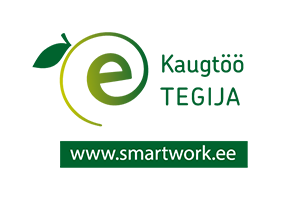 All news
All news

Smart Machines and Systems at the Service of Mankind: Andrus Pedai - “Quantum computers as foundation for humanity's next breakthrough”
Andrus Pedai, PhD in production engineering and robotics, TalTech, 2021. Rector of the Estonian Entrepreneurship University of Applied Sciences. 20+ years’ experience in high technology manufacturing and education. Research focuses on control systems for autonomous vehicles and applications.
The topic covered during the conference was “Quantum computers as foundation for humanity's next breakthrough”.
To start, Mr Pedai said that quantum computing has the potential to change the world. Its current market value is 1.3 billion USD, and it’s expected to grow to 5.3 billion USD by 2029. This increase will be driven by growing number of companies investing into quantum computing technologies.
Fields like healthcare, pharmaceutics, transportation, etc., are already using quantum computing in their daily operations. The field of quantum computing will need many newly trained specialists that can expect to receive high salaries. It’s very likely that the field of quantum computing will explode in the near-term future and there will be a great number of exciting opportunities for those interested in the details behind quantum computing.
The development towards quantum has progressed in waves. From analog computers in 1950’s to desktop boxes, and now everyone is carrying small supercomputers in the format of smartphone in their pockets. These small supercomputers encompass much more computing power than, for example, the 1985 supercomputer Cray. The speaker mentioned that by Moore’s law the number of transistors on a chip will double after every two years. However, it seems that now we are reaching the point where the laws of physics will stop this law from progressing further. This means that the transistors are constantly growing smaller, until they reach the size of 5 atoms across, and by then the technology becomes obsolete. The Heisenberg uncertainty will kick in, the knowledge of the location of the atom will be unknown and the transistor will short circuit. The solution to solve this problem is to switch to quantum computing.
Stepping deeper into the topic, the speaker introduced the fundamental principles of quantum computing:
· Superposition, which allows quantum computers to process vast amounts of information instantaneously.
· Entanglement, the phenomenon where qubits become interconnected and the state of one qubit affects the state of another directly, no matter the distance between the
qubits. This allows quantum computers to perform complex calculations and run them massively in parallel.
· Interference, the systems can interfere with each other. This allows both to enhance the correct answers and phase out the incorrect ones during computations.
· Quantum decoherence, during which the system is losing its quantum behaviour and transitions to the classical stage.
Moving on to quantum computers, Mr Pedai said that it’s already possible to purchase one, and the price for an entry level quantum computer is approximately 5 million USD. IBM offers services provided by quantum computing and each of us could use them for a price of 100 USD per minute. The way of working for the quantum computer was briefly explained. In the first step the operator will use regular computer to formulate the task. The task will be sent from the regular device to the cloud, then queued and sent further to the control computer. This creates a mixed signal, a frequency that can be digitised and sent to the quantum computer; after interacting with the qubits the signal will move through the amplifier back to the normal computer. The signal is then processed again and then, at the end of the flow, converted back to ones and zeros and the calculation results are returned to the operator.
Concerning quantum computers, the technology is not yet there for series production. Technology is still in the early phases and there are many issues to solved, e.g., coherence and noise. The environment for quantum computing needs to be very stable and secure. A lot of work needs to be done in the field of error correction. In the near future the most feasible solution, for best possible results, consists of both a quantum computer and a classical one. To add, Mr Pedai brought forward some fields where quantum computers are highly likely to provide the biggest gain, e.g., cryptography, chemistry, AI and machine learning, financial modelling, and many more.
To conclude, the keynote speaker referred to their scientific paper published in 2014, discussing technological singularity. The idea of a machine so smart that it will build its own follow-up. It might happen quite soon, he explained, considering the development in AI. This moment where the machine achieves its own consciousness and starts fulfilling its own goals, is called the point of singularity. From that point human involvement will not be necessary to further support the development of technology. From that moment the carbon-based intelligence will stop being the power behind the technological development, as the silicon/quantum intelligence has taken the lead. When exactly this point will be - there are several different opinions. You can find full discussion on our Youtube channel. More information at conference homepage.

 Student
Student

